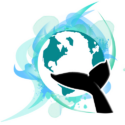Harbor porpoise calves ingest toxic chemicals through their mother’s milk
Persistent organic pollutants (POPs), though banned, remain a threat to marine ecosystems, particularly damaged the harbor porpoises in the North Sea. A study found that these porpoises consume high concentrations of such pollutants while feeding, compromising their health and reproduction. Transferred from mothers to calves through lactation, these chemicals, such as PCBs, pose a major concern for the future population of these marine mammals. This calls for enhanced conservation strategies and more responsible individual actions.
Harbor porpoise calves ingest toxic chemicals through their mother’s milk Read More »
